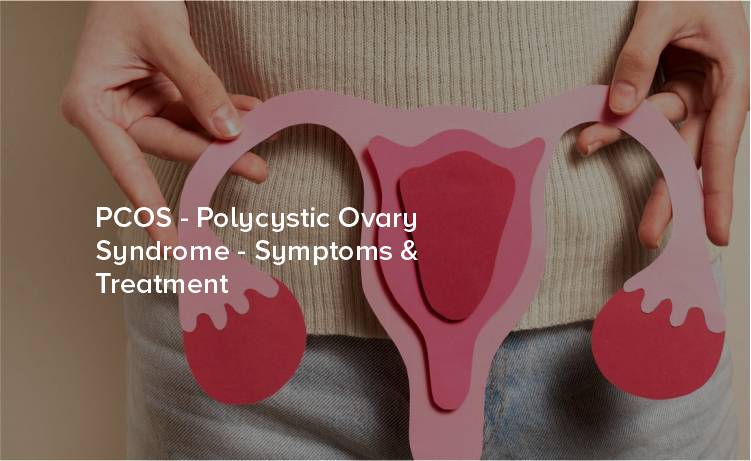
Polycystic Ovary Syndrome (PCOS) is a condition many of us have heard of, but few truly understand the intricacies of. Cloaked in misconceptions and often surrounded by unanswered questions, PCOS affects approximately 1 in 10 women of childbearing age, making it a common yet under-discussed topic.
At its core, PCOS is a hormonal disorder common among women of reproductive age. Women with PCOS may have infrequent or prolonged menstrual periods or excess male hormone (androgen) levels. The ovaries may develop numerous small collections of fluid (follicles) and fail to regularly release eggs.
But, as with any medical condition, PCOS is not a one-size-fits-all situation. It presents a spectrum of symptoms, and not all those diagnosed with PCOS will experience the same signs or to the same extent.
The symptoms of PCOS can vary widely, but there are several key indicators to watch for:
Irregular Periods: This is one of the most common signs. You might experience fewer than nine periods a year, more than 35 days between periods, and abnormally heavy periods.
Excess Androgen: Elevated levels of male hormones may result in physical signs, including hirsutism (excess facial and body hair), severe acne, and male-pattern baldness.
Polycystic Ovaries: Your ovaries might be enlarged and contain follicles that surround the eggs. As a result, the ovaries might fail to function regularly.
It's important to note that PCOS symptoms often begin shortly after puberty, but they can also develop during the later teen years and early adulthood. Because people with PCOS typically have irregular periods or even no periods at all, it can often lead to difficulty conceiving, which is why many women discover they have PCOS when they begin trying to get pregnant.
While PCOS is widely associated with fertility issues, its impact is far-reaching, affecting various aspects of health:
Metabolic Syndrome: Up to 80% of women with PCOS are overweight or obese; both obesity and PCOS increase your risk for high blood pressure, low HDL (good) cholesterol, high LDL (bad) cholesterol, and elevated triglycerides.
Type 2 Diabetes: Women with PCOS are at higher risk of developing type 2 diabetes and are diagnosed at an earlier age.
Depression and Anxiety: Hormonal imbalances along with PCOS symptoms can contribute to feelings of depression and anxiety.
There's no one-size-fits-all treatment for PCOS, but the condition can be managed effectively with the right approach:
Lifestyle Changes: For those overweight, weight loss can reduce PCOS symptoms. A healthy diet and regular exercise can improve the efficacy of medications prescribed for PCOS.
Medications: Birth control pills can regulate periods, clear acne, and reduce excess hair growth. Metformin is often used to improve insulin resistance. For fertility issues, medications like Clomiphene can encourage ovulation.
Surgery: In rare cases, when other treatments haven’t worked, a surgical procedure known as ovarian drilling is considered to stimulate ovulation.
Living with PCOS can be challenging, but with the right support and treatment plan, many women find they can manage their symptoms and reduce the impact PCOS has on their lives. Connecting with a healthcare provider who understands and specializes in PCOS is crucial. Online and local support groups can also provide valuable resources, including coping strategies, communal support, and shared experiences.
In terms of diet and lifestyle, focusing on a balanced, nutritious diet and regular exercise has shown to have a significant positive impact on PCOS symptoms. Some find that certain dietary approaches like a lower-carb or anti-inflammatory diet can help manage weight and improve insulin sensitivity.
Though PCOS is currently incurable, its symptoms can be managed with a combination of lifestyle changes, treatment, and close monitoring by healthcare professionals. Research into PCOS is ongoing, meaning that new treatments and understanding are constantly on the horizon. Citizens Specialty Hospital is the best Gynaecology Hospital in Hyderabad. Book an appointment with our experts now.
Dr M. Suneetha is one of the top medical oncologists in Gurugram. He has a vast experience of more than 30 years in the field of Medical oncology. He his specialised in treating leukemia,lymphoma, hematological oncology and other complex oncology cases . He is also specialised in Bone Marrow Transplantation (BMT) treatment. He is working as a Senior Consultant, HOD, Medical Oncologist in American Oncology Institute, Gurugram.